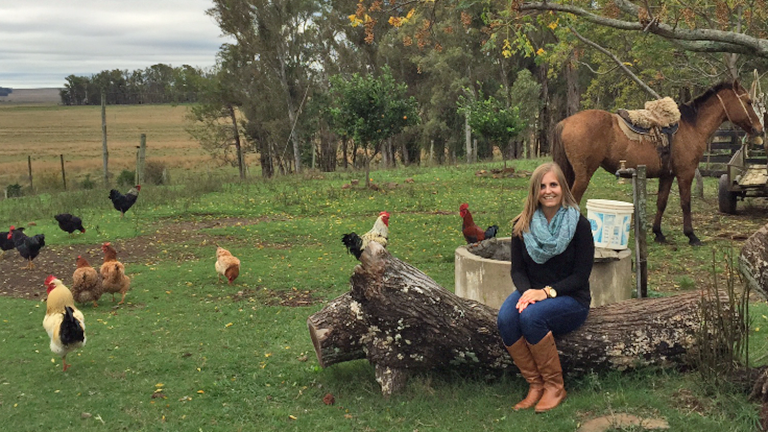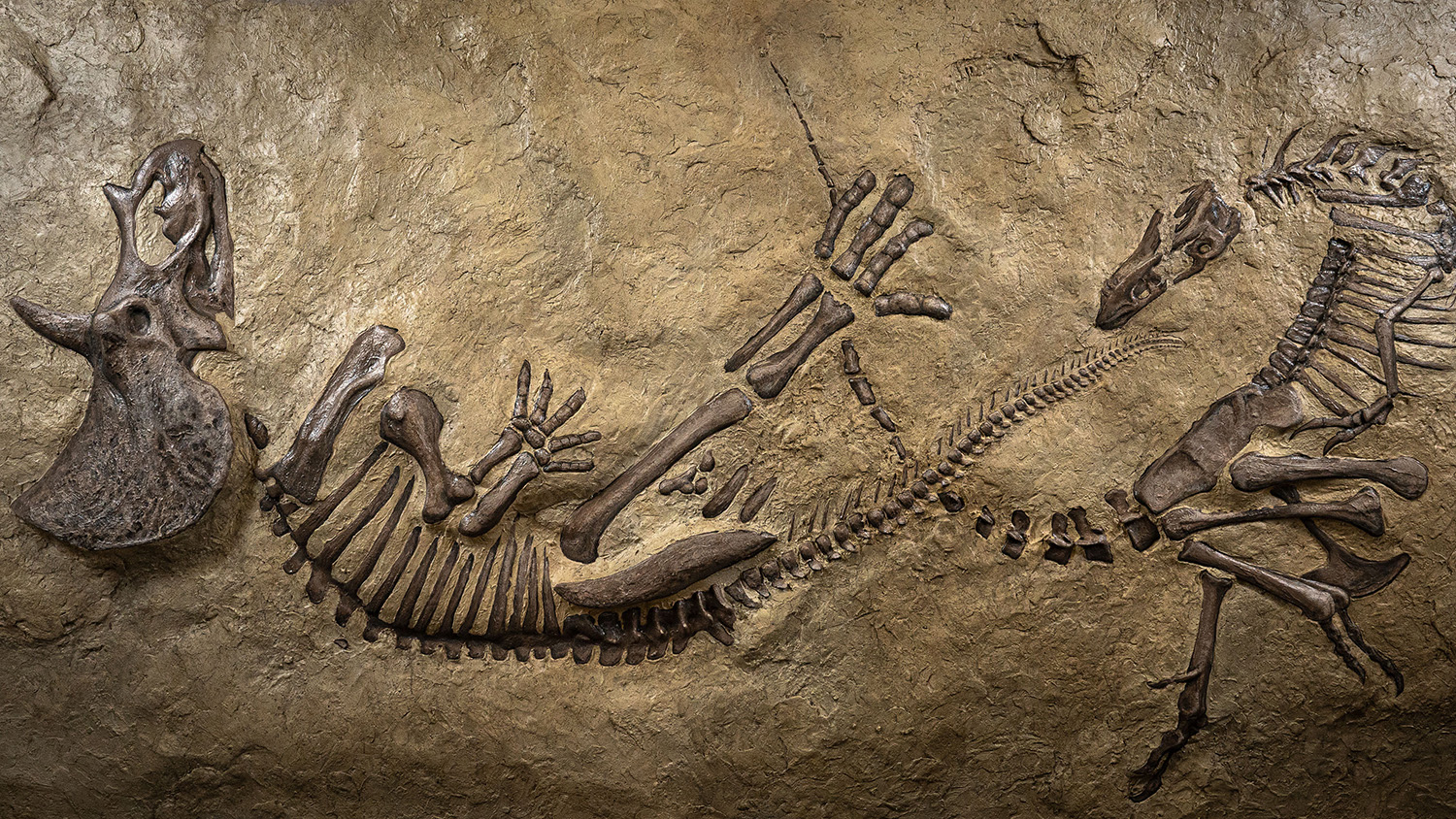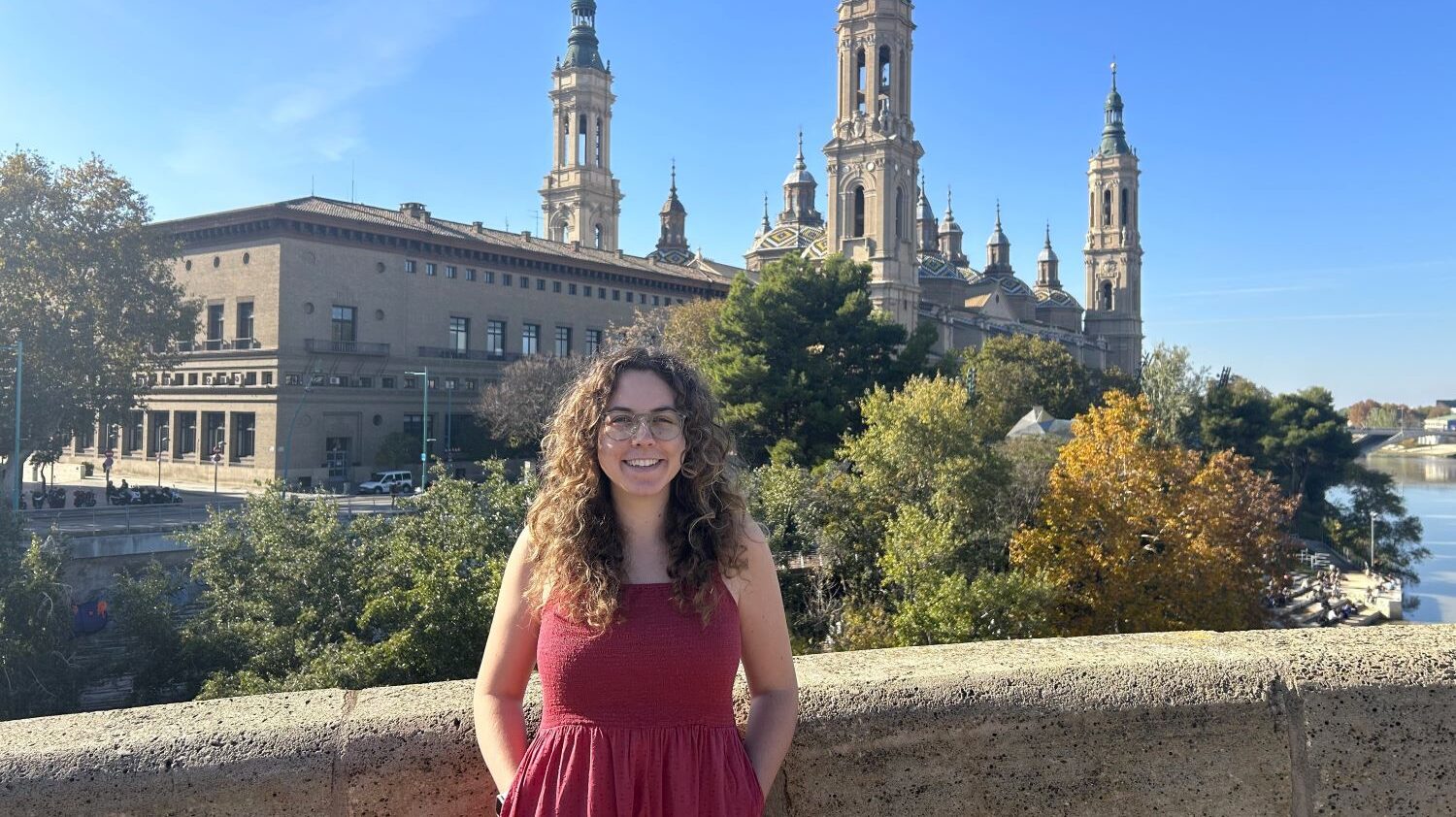Grad Student Ashley Meehan Studies English’s Influence on Spanish

Editor’s Note: As a research-intensive university, NC State works to create economic, societal and intellectual prosperity. The Alumni Association’s summer research series highlights innovative work of Wolfpack students, faculty and alumni. In this Q&A, Foreign Languages and Literatures graduate student Ashley Meehan tells us about her travels around the country to study how the English language has influenced Spanish.
Q: Can you tell us about the research you are doing this summer? What are you hoping to accomplish or learn?
Meehan: This summer I will be in the Bay Area of California completing my final research project examining how Mexican Spanish speakers interchange Spanish and English words. After conducting sociolinguistic interviews, I hope to add to the research I have already conducted with Mexican Spanish speakers in Raleigh, North Carolina, and in Texas. We have a lot to learn about the emerging dialect that is United States Spanish, and it is crucial to examine not only the influence of the English language on Spanish, but also how contact with bilingual English-Spanish speakers has had an impact on the linguistic changes this country has seen and will continue to see in the future.
Q: How did you become interested in studying Spanish?
Meehan: It started off small just listening to Spanish songs on the radio when I was younger. But as I continued my studies, I recognized quickly that learning Spanish would allow me to access unique cultures and communities of people. I went on to double major in political science and Spanish and travel to countries such as Mexico, Argentina, Peru, Uruguay and Spain where my love for the language only flourished.

Q: You have been conducting your research in the Bay Area this summer. Why was this location chosen?
Meehan: I have completed my research here in Raleigh and wanted to conduct the same exact study in other cities around the U.S. to show a fuller image of the linguistic changes that are occurring across the country in a variety of different bilingual communities.
Q: Who are the beneficiaries of your research? Can you give an example of how the average person would feel the benefits?
Meehan: I am hopeful that my research will benefit Spanish, English and bilingual speakers alike, making the U.S. population more knowledgeable. There is a stigma that the Spanish spoken by younger generations is “incorrect” and “not real Spanish.” In reality, U.S. Spanish is an emerging dialect just like one from any other country in contact with another language. Future generations should not feel scared or ashamed to use their Spanish. I hope studies like mine make bilingual speakers in the U.S. proud to use their Spanish and to pass for generations to come. The average person would benefit in understanding how language contact works and therefore have a larger respect for that contact in their community.
Q: What is the most common misconception about your research or field of study?
Meehan: Some people think that Spanish is going to take over English, when in reality no threat exists. Both languages exist independently, and at the same time, the Spanish-English bilinguals are creating an emerging new dialect to be studied.
Q: What do you find most fascinating about your research or field of study?
Meehan: I find it fascinating to witness changes in the bilingual speech communities of Raleigh and the Bay Area in real time. It is amazing to see the influence English has on Spanish.


